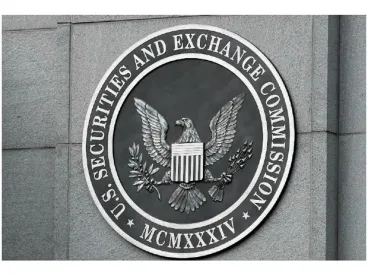In a recent speech, SEC Chair Mary Jo White discussed the current role of mutual fund directors and what the SEC expects of them going forward.
The Role of Independent Directors in Assessing Risk
In remarks at the Mutual Fund Directors Forum 2016 Policy Conference on March 29, US Securities and Exchange Commission (SEC) Chair Mary Jo White stated that the evolving complexity of mutual funds calls for directors to be vigilant in considering whether a fund is fully addressing current and future risks.[1] She used two recent events as examples that illustrate operational and liquidity risks, both of which are key focus areas for the SEC and fund directors. The first event occurred in late August 2015, when a major service provider was unable to provide timely, system-generated net asset values (NAVs) for several fund families and was forced to create an alternative means of calculating NAVs. The second event occurred in December 2015, when a mutual fund focused on investments in high-yield and distressed debt suspended redemptions because of an increasingly illiquid market for a significant portion of the assets in its investment portfolio.
Chair White stated that it is not enough for fund directors to be reactive to issues that have already arisen. Instead, directors must be proactive in their thinking and planning and ask fund management tough questions now to ensure that funds and directors are informed regarding potential future issues and as prepared as possible to handle them.
Board Composition
Chair White also stated that boards of directors should contemplate the emerging problems of tomorrow and what issues, if any, they are missing. To address the complexity of today’s marketplace, directors need to consider whether their board, as it is currently composed, is equipped with the necessary diverse skills, experience, and expertise and whether a board should hire subject matter experts as consultants.
Distinction Between Oversight and Management
According to Chair White, a board’s oversight function and directors’ service as “gatekeepers” in protecting shareholder interest will remain a key point of focus for the SEC moving forward.
Chair White emphasized that although the role of directors is expanding, a board’s role remains separate from day-to-day management and the day-to-day administration of a fund’s compliance policies and procedures. As Chair White stated, the role of a board is to provide independent oversight of these and other crucial functions and to approve compliance policies and procedures that govern those functions, not to perform those functions.
As she herself noted, Chair White’s speech coincided with the due date of comments to an SEC proposal pertaining to derivatives that requires, among other things, that a fund board approve one of two alternative portfolio limitations on a fund’s use of derivatives and that it also approve policies and procedures for managing risks associated with the fund’s derivatives transactions.[2] Although Chair White acknowledged that the proposal had raised concerns about the proposed increased role of boards, she also noted that many commentators had expressed general support for the SEC’s approach.
Enforcement Against Directors
Chair White also discussed the current enforcement environment in the context of board responsibility. According to Chair White, directors who exercise their responsibilities effectively and perform their oversight roles with diligence and skill need not fear enforcement, because judgments that directors make in good faith based on responsibly performing their duties will not be second guessed. However, she was careful to point out that being a director does not provide immunity from charges. Implicit in her comments was that good faith alone will not protect a director. She said, “When directors fail to perform their duties, they should expect action to punish and deter such conduct.” On the other hand, she added, “most directors do their jobs, carefully reviewing the briefing materials they receive, asking questions instead of rubber-stamping management recommendations, investigating potential inaccuracies, and following up on unfulfilled requests.” She went on to say that directors must discharge their important gatekeeper function (ensuring that proper procedures are followed and that the interests of investors are served) and that the SEC’s enforcement cases, although rare, serve to ensure that these responsibilities are fulfilled.[3]
It is unclear whether, to avoid enforcement action where things go wrong, directors must meet all of these demanding criteria that, according to Chair White, are met by “most directors.” But, clearly, directors will want to show that they indeed performed their oversight role with “diligence and skill,” and Chair White’s comments should help directors understand what they need to do to make that demonstration.
[1] Mary Jo White, Chair, Securities and Exchange Commission, The Fund Director in 2016: Keynote Address at the Mutual Fund Directors Forum 2016 Policy Conference (Mar. 29, 2016).
[2] See Use of Derivatives by Registered Investment Companies and Business Development Companies, Release No. IC-31933 (Dec. 11, 2015) For more information on the use derivatives, see the white paper from the SEC’s Division of Economic and Risk Analysis, Use of Derivatives by Registered Investment Companies.
[3] See, e.g. In re J. Kenneth Alderman, et al., Release No. IC-30557 (Jun. 13, 2013) (Eight fund directors charged with causing funds to violate rule 38a-1 by failing to approve any fair valuation methodology and failing to continuously review the application of an approved methodology); In re Commonwealth Capital Management, LLC, et al, Release No. IC-31678 (June 17, 2015) (Four fund directors charged with failing to satisfy their obligations under section 15(c) after the directors did not receive certain materials they had specifically requested from the adviser, failed to follow up, and did not seek to clarify incomplete, unclear, and inaccurate information that they had received).







 />i
/>i

